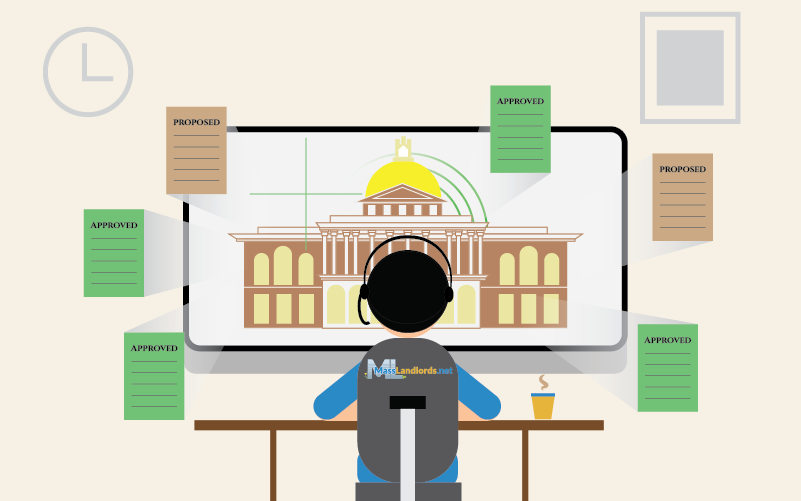Early Warning System for Hearings, Bills and Ordinances
MassLandlords has developed an "early warning system" for bills, ordinances, and hearings. This system can alert members and staff to housing-related issues so we can provide timely testimony at hearings. We need your help to make the system work!
This training reviews Massachusetts housing policy and give a demonstration of the early warning system:
- How does an idea become law in the state or a city or town?
- Where are public notices posted?
- Why did we develop this system?
- What does the early warning system do?
- Has it made a difference?
- Who can participate?
- What do I do if I find something?
- How do I sign up?
Help us track the bills that will be filed!





